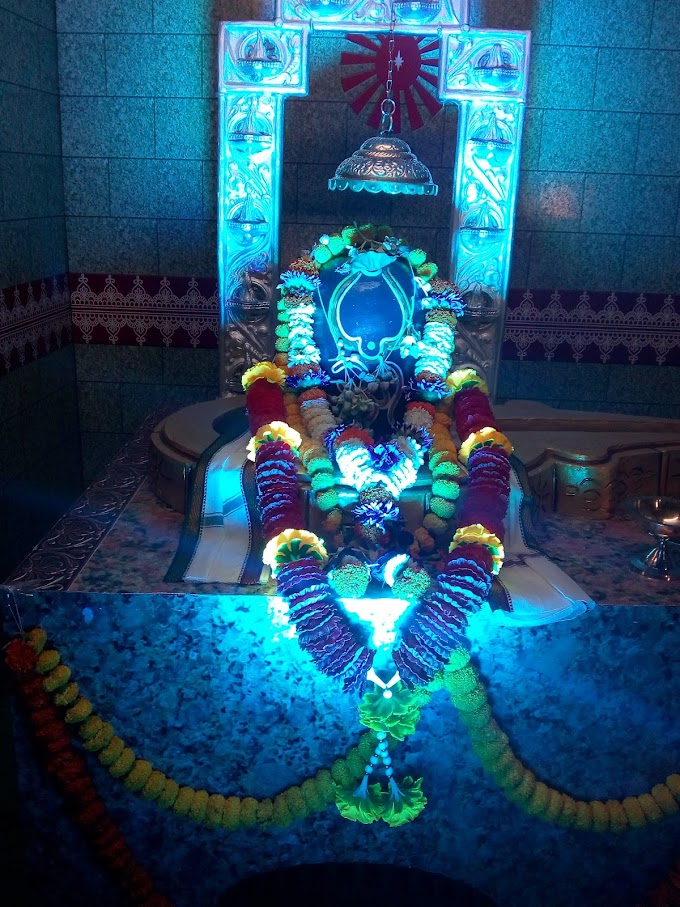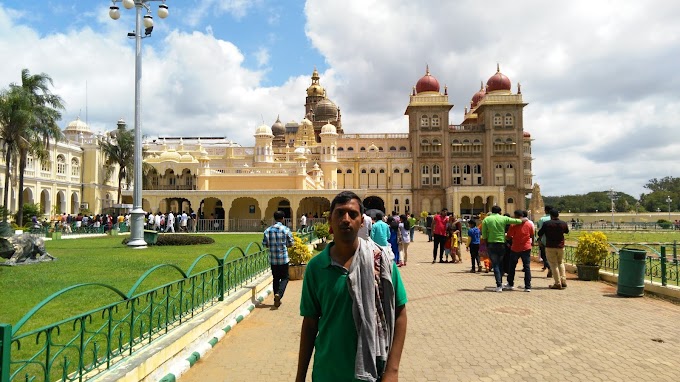Sanatana dharma
is not a religion but it is the mother
of all religions
which shows the path of Moksha
Sanatana Dharma is popularly known as “Hinduism”
or “Hindu Dharma”. Dharma is often translated as "KARTABYA" “DUTY,” “PATH”
and yet its meaning is more thoughtful, challenging to the point of English
translation. English is an universal language in present day. a person’s dharma
consists of duties that sustain him, according to his inherent or original characteristics.
Such characteristics are both material and immaterial like spiritual or
generating are the way of corresponding of dharma.
The concept of
spiritual culture is an integral part of sanatana dharma. The term isn't
exclusively applied to the Hindu religion but, it is a set of timeless values
that help us fulfill our possible and understand the stream, law and order of
the universe. The tradition of sanatana dharma is very vital for all human
being irrespective of men and women, religion, geographical area and applicability
to people in all places and at all times.
Sanatana dharma shows the way of Moksha
by procedure of spiritual experiences above religious issues and yoga practice.
If someone see the tradition and rules of sanatana dharma as a truthful term
than Hinduism. Hindusim is not a
religion but it is the way of smart life. Hence in ancient India, spiritual
teachings that were aimed to regulate and define ideal human life, conduct, and
obligatory duties towards society.
During the ancient
civilization, the human being were not divided on the basis of religious and
that days had no religion also. If we see from the side of science, during the
ancient civilization only thought about how to live and what is the way to
live.
Lord Gautama Buddha period started from 5th
Century BC to onward, Lord Mahavira Jains period started from 5th
Century to onwards, Lord Jesus period stared from 4 BC to onward, Lord Muhammad
period started from 583 AD onward. But prior to all these religion come to an
existence, Sanatana Dharma was existence which is evident discovered from Indus
Civilization. Due to Sanatana Dharma, the Hundu religion is called the oldest
religion.
Many persons are
think that Hindu or Hinduism is a religion but that is not correct. The
ideology or Sanatana Dharma provides the rules, regulation and also path
towards disciplinary life of the human and behavior of the human also. After
Sanatana Dharma, the religion word generated and other religion generated from
Sanatana Dharma.
Every living creature
is the multiplicity of God's creation whose role and a specific duty in God's
manifested universe, without which creation will be incomplete. Thus Sanatana
Dharma is God's eternal duty.
God is the director
and all other living creatures are the actor of the stage. The director gives
instruction how to perform and what to do on stage.
The duty of human
beings is to live smartly, to help the other living creature and nurture to
whom we need in every moment. They are also expected to serve the purpose of
creation, do their part in maintaining the law and order of the world as well
as society. Five obligatory duties of the Sanatana Dharma due to their practice
lead to harmony, peace, order and regularity. The Five Obligatory duties are i)
nourishing gods, ii) nourishing ancestors, iii) nourishing needy human beings,
iv) nourishing other living beings and v) serving the seers and brahmanas.
Dharma actually means
duty. Sanatana which means eternal. Therefore Sanatana Dharma means the eternal
duty of God. This Duty of God is shared, not just by Hindus, but by all living
creature. Here the word “Dharma” is defined as a set of moral, regulations and
principles which govern the religious duty and conduct of human on earth. The
important principle of dharma is to protect the order and law of the world
through specific actions in which morality and religion are the guiding
factors.
There are some
principle on which the Sanatana Dharma stands.
- Truth
is eternal
- Brahman
is Truth and Reality
- The Vedas are the
ultimate authority
- Everyone
should try hard to achieve dharma
- Individual
souls are immortal
- The
goal of the individual soul is moksha
- Perform
the duty to get Moksha
Hindusim is not a religious for which
the tradition and customs has not affect to other like other religious. Whoever
were / are interested to earn the knowledge of Sanatana Dharma or it is the
will of individual whether accept this Sanatana Dharma as religious or not.
In past few years ago no one knew what
is the Sanatana Dharma and some were had inferior feeling or thinking about
Sanatana Dharma outside of India. Sanatana
Dharma is now very much popular and accepted in other part of world due to
Swami Vivekananda.
Swami Vivekananda, a young boy who
changed the mind of all persons on the part of western on 11th day
of September, 1893 by delivering his powerful speech at the parliament of World’s
Religions in Chicago. If we
think that who was established the Sanatana Dharma? There is no answer but
Swami Vivekananda was the preacher who expand and brought to the knowledge of
every common person.
WHY
SANANATA DHARMA IS NOT A RELIGION?
The aim of Sanatana
dharma is
the eternal function of the eternal living entities in connection with the Supreme
Lord. The word ‘SANATANA’ is explained as “that which
has neither beginning nor end”. The word “RELIGION” is different from Sanatana-dharma.
Religion express the idea of faith and faith may change. One may have faith in
a particular practice and he may change this faith and adopt another ideology
which may suitable for his / her, but Sanatana-dharma refers to that activity which
cannot be changed. Sanatana-dharma is described in the Vedas and its consequence.
The word “Hinduism” is defined in
Sanatana Dharma that it is neither a Religion nor preaching but Hinduism exists
for the existence of Life itself. Buddhism, Christianity and Islamic Dharma, all
these three Religions inherently are also the followers of Sanatana Dharma. the
Ideology of Sanatana Dharma has express in different way in name of different religion but the meaning is the same i.e.
DHARMA, and Moksha. There is nothing
beyond Bhagavad Gita in hinduism which one is required to follow to reach at the
stage of Salvation (moksha).












